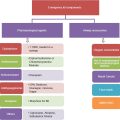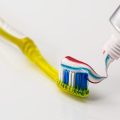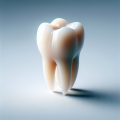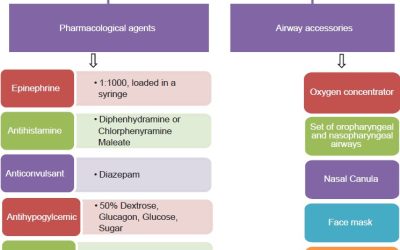So, you find yourself in the unfortunate position of needing an emergency dental procedure. It’s not exactly the ideal situation, but sometimes accidents happen, right? Anyway, you’re probably wondering how long it’s going to take for you to recover from this ordeal. Will it be days? Weeks? Months? Well, fear not, because in this article, we’re going to break it all down for you. We’ll explore the different factors that can affect recovery time and give you some tips on how to speed up the process. So, sit tight, and let’s get into it!
Normal Recovery Time After an Emergency Dental Procedure
When it comes to recovering from an emergency dental procedure, there are several factors that can affect the length of time it takes to fully heal. These factors include the type of procedure, the extent/severity of the dental issue, your individual healing ability, pre-existing dental conditions or complications, and your overall health and immune system. Understanding these factors can give you a better idea of what to expect during your recovery process.
Factors Affecting Recovery Time
Type of Emergency Dental Procedure
The type of emergency dental procedure you undergo will greatly impact your recovery time. Procedures such as a simple tooth extraction or root canal treatment generally have a shorter recovery period compared to more complex procedures like dental implant surgery or gum surgery. The nature of the procedure, the invasiveness, and the amount of work required will all influence the length of your recovery.
Extent and Severity of the Dental Issue
The extent and severity of your dental issue will also play a role in how long it takes to recover. For example, if you have a minor tooth infection that only requires a short course of antibiotics, your recovery time may be relatively quick. On the other hand, if you have a severe dental infection or a complex oral surgery, it may take longer for your body to fully heal.
Individual Healing Ability
Each person’s body has its own unique healing ability. Some individuals may naturally heal faster than others. Factors such as age, overall health, and lifestyle choices can all impact how quickly your body can recover from a dental procedure. It’s important to remember that everyone’s healing process is different, so your individual healing ability will greatly influence your recovery time.
Pre-existing Dental Conditions or Complications
If you have pre-existing dental conditions or complications, such as gum disease or a weakened immune system, your recovery time may be longer. These underlying conditions can make it more difficult for your body to heal, increasing the time it takes to fully recover. It’s crucial to disclose any pre-existing conditions to your dentist before undergoing a procedure so that they can take them into consideration when planning your treatment and anticipating your recovery time.
Overall Health and Immune System
Your overall health and immune system also play a significant role in your recovery time. If you have a strong immune system and good overall health, your body will be better equipped to fight off infection and heal more efficiently. On the other hand, if you have a compromised immune system or underlying health issues, your recovery time may be prolonged. Taking care of your overall health, including eating a balanced diet, getting regular exercise, and managing stress, can positively impact your recovery time after an emergency dental procedure.
Generally Accepted Recovery Timeframes
While recovery times can vary depending on the factors mentioned above, there are generally accepted timeframes for common emergency dental procedures. It’s important to note that these are just estimates and every individual’s recovery can be different. It’s always best to consult with your dentist for an accurate assessment of your own recovery time.
Extraction of a Single Tooth
Recovery after a single tooth extraction typically takes about 7-10 days. During this time, it’s normal to experience some discomfort, swelling, and minor bleeding. Your dentist may provide you with pain medication and specific instructions for caring for the extraction site to promote healing.
Root Canal Treatment
Recovery after a root canal treatment can take anywhere from a few days to a week. Most patients experience some soreness or sensitivity in the treated tooth and surrounding area, which should gradually improve over time. Your dentist may prescribe antibiotics or recommend over-the-counter pain relievers to manage any discomfort during the healing process.
Dental Implant Surgery
Dental implant surgery is a more complex procedure that involves the placement of a titanium implant into the jawbone. The recovery period for dental implant surgery can vary but generally takes around 3-6 months. This allows time for the implant to fuse with the surrounding bone, a process known as osseointegration. During this period, temporary restorations may be placed to maintain function and aesthetics. It’s important to closely follow your dentist’s post-operative instructions and attend regular follow-up appointments for proper healing and successful implant integration.
Gum Surgery (Gingivectomy/Gingivoplasty)
Recovery time after gum surgery depends on the extent of the procedure. Generally, it takes about 2-4 weeks for the gums to heal completely. During this time, you may experience some swelling, discomfort, and sensitivity in the treated area. Your dentist may prescribe pain medication and recommend a soft food diet to aid in healing. It’s crucial to adhere to proper oral hygiene practices and follow your dentist’s instructions to avoid any complications during the healing process.
Wisdom Teeth Removal
The recovery time after wisdom teeth removal can vary from person to person, but typically takes about 7-10 days. Swelling, discomfort, and limited jaw movement are common during the initial days of recovery. Your dentist may prescribe pain medication and provide instructions for managing any bleeding and swelling. It’s important to follow a soft food diet, maintain proper oral hygiene, and attend any follow-up appointments to ensure a smooth recovery.
Jaw Fracture Repair
Recovery time after jaw fracture repair can be lengthy, ranging from weeks to months. The exact length of recovery depends on the severity of the fracture and the treatment method used. Your dentist or oral surgeon will provide specific instructions for managing pain, swelling, and restricted jaw movement during the recovery period. It’s crucial to follow these instructions closely and attend regular follow-up appointments for proper healing and to prevent any complications.
Treatment for Oral Infections
The recovery time for oral infections can vary depending on the type and severity of the infection. Mild infections may resolve within a few days with the use of antibiotics and proper oral hygiene practices. However, more serious infections may require more extensive treatment, such as draining abscesses or root canal therapy, and may take longer to fully recover. It’s important to closely follow your dentist’s instructions and complete any prescribed medications to ensure a successful recovery.
Treatment for Dental Trauma
Recovery time after dental trauma can vary based on the extent and severity of the injury. Simple injuries, such as a chipped tooth, may only require a few days for the tooth to stabilize and any pain or sensitivity to subside. More significant traumas, such as a tooth knocked out or a fractured jaw, will require more extensive treatment and a longer recovery period. It’s crucial to seek immediate dental care in cases of dental trauma and follow your dentist’s instructions to promote proper healing.
Recovery Tips to Enhance Healing Process
While each recovery process will vary, there are certain tips you can follow to enhance your healing and promote a smoother recovery after an emergency dental procedure:
Follow Dentist’s Instructions
Your dentist will provide specific post-operative instructions tailored to your procedure. It’s essential to follow these instructions closely, including medication schedules, oral hygiene practices, and any dietary restrictions. These instructions are designed to promote proper healing and prevent any complications.
Manage Pain and Swelling
It’s common to experience pain and swelling after an emergency dental procedure. Your dentist may prescribe pain medication to manage any discomfort. Applying an ice pack to the affected area can help reduce swelling. It’s important to avoid directly placing the ice pack on the skin and instead wrap it in a cloth before applying it for short intervals.
Maintain Oral Hygiene
Proper oral hygiene is vital for a successful recovery. Follow your dentist’s instructions for brushing, flossing, and rinsing to keep the surgical site clean and prevent infection. Avoid brushing directly on the surgical area and use a gentle touch when cleaning the surrounding teeth.
Follow a Soft Food Diet
During the initial stages of recovery, sticking to a soft food diet can help minimize discomfort and promote healing. Opt for foods that are easy to chew and swallow, such as soups, smoothies, mashed potatoes, and yogurt. Avoid hard, crunchy, or sticky foods that can irritate the surgical site.
Avoid Smoking and Alcohol
Smoking and alcohol can delay the healing process and increase the risk of complications after an emergency dental procedure. It’s best to abstain from smoking and avoid alcohol consumption during your recovery period to promote optimal healing.
Take Adequate Rest and Sleep
Rest is crucial for the body’s healing process. Make sure to get plenty of rest and sleep to allow your body to recover. Avoid strenuous activities or exercises that can put strain on the surgical area.
Application of Cold or Warm Compress
Depending on your dentist’s recommendations, applying a cold or warm compress to the affected area may help reduce swelling and alleviate discomfort. Use the compress as directed and for the recommended duration to avoid any potential damage to the surgical site.
Use of Prescribed Medications
If your dentist prescribes medication, make sure to take it as directed. This may include antibiotics to prevent infection or pain medication to manage discomfort. It’s crucial to complete the full course of prescribed medications to optimize your recovery.
Regularly Attend Follow-up Appointments
Follow-up appointments are essential for monitoring your recovery progress and addressing any concerns or complications. Make sure to attend all scheduled follow-up appointments and communicate any changes or issues you may be experiencing.
Contact Your Dentist for Concerns or Complications
If you have any concerns or experience unexpected complications during your recovery, don’t hesitate to contact your dentist. They are there to support you and can provide guidance and solutions to any problems you may encounter.
By understanding the factors that affect recovery time, knowing the generally accepted recovery timeframes for different procedures, and following these recovery tips, you can help ensure a smoother and more successful recovery after your emergency dental procedure. Remember to consult with your dentist for personalized advice and guidance throughout your recovery journey.












